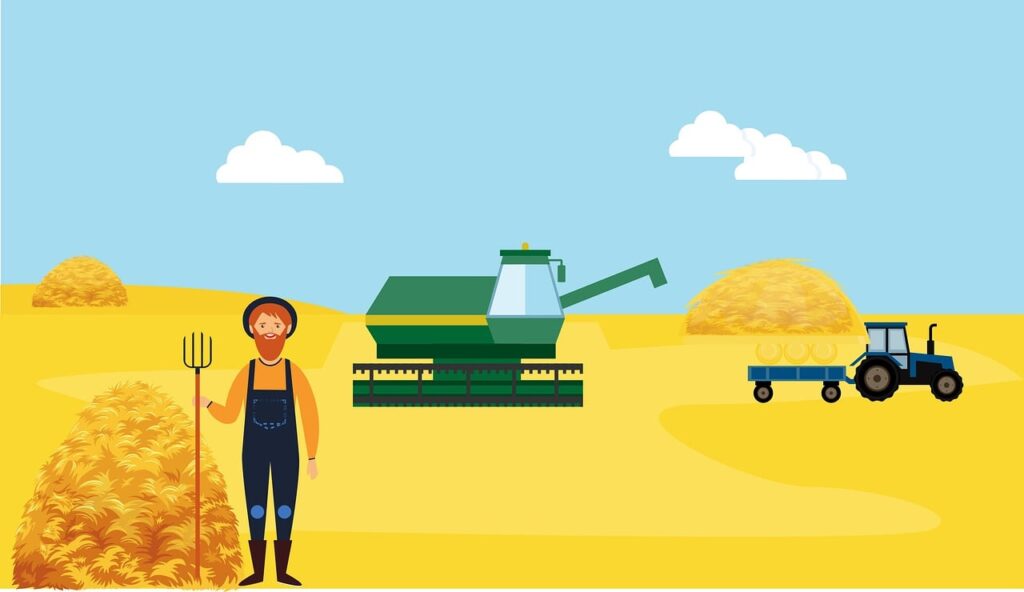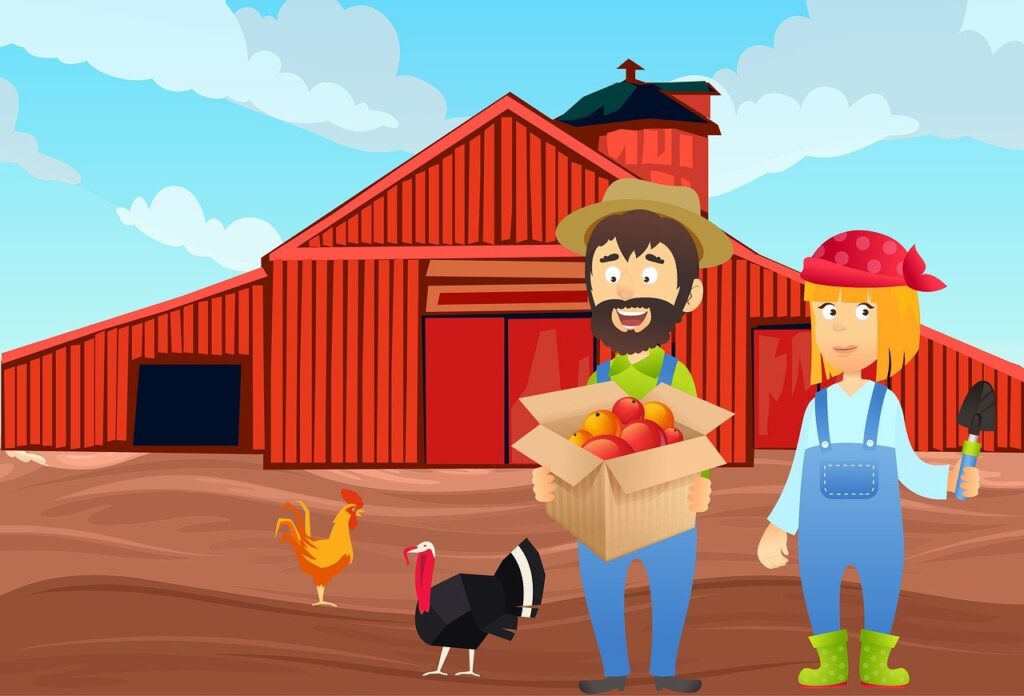Rural markets offer unique opportunities and challenges for entrepreneurs. While these areas often lack the infrastructure and resources found in urban centers, they also present untapped potential for innovative business ventures. Here are five rural business ideas that can thrive in rural markets, each designed to address specific needs and leverage local strengths.
1. Agricultural Technology Services
Agricultural technology services involve providing modern farming equipment, advanced irrigation solutions, and innovative crop management technologies to enhance agricultural productivity. This can include the sale and rental of tractors, plows, harvesters, drip irrigation systems, and precision farming tools like drones and GPS-guided equipment.

Why It Works
Agriculture is the backbone of most rural economies. However, many farmers in these areas still rely on traditional farming methods, which can be inefficient and less productive. Introducing modern agricultural technology can significantly boost crop yields, reduce labor costs, and improve overall efficiency.
By offering training and support alongside the technology, businesses can ensure that farmers can effectively utilize these tools. This not only increases the farmers’ profitability but also builds long-term relationships and trust within the community.

Image by GraphicMama-team from Pixabay
Implementation
- Market Research: Understand the specific needs of the local farmers and the types of crops they grow.
- Partnerships: Collaborate with agricultural universities and research centers to stay updated with the latest technologies.
- Training Programs: Offer workshops and on-site training to educate farmers on the benefits and use of new technologies.
- Support Services: Provide ongoing maintenance and support services to ensure the technology remains functional and beneficial.
2. Microfinance and Small Loans
Microfinance institutions (MFIs) provide small loans and financial services to entrepreneurs and farmers who typically lack access to traditional banking. These services include microloans, savings accounts, insurance, and financial literacy programs. However, this can lead to future complications if the local market is not studied properly before including this in the rural business ideas.

Why It Works
Access to capital is a significant barrier to economic growth in rural areas. Many small-scale farmers and rural entrepreneurs need more financial resources to invest in their businesses or improve their livelihoods. Microfinance bridges this gap, enabling them to make necessary investments, purchase equipment, or expand their operations.
Microfinance can stimulate local economies by empowering individuals and small businesses, leading to job creation and improved living standards. Furthermore, financial literacy programs can enhance the community’s ability to manage money effectively, fostering sustainable economic growth.
Implementation
- Assess Demand: Conduct surveys and community meetings to understand the financial needs and potential demand for microfinance services.
- Collaborate: Work with local NGOs, cooperatives, and community leaders to build trust and awareness.
- Develop Products: Tailor financial products to meet the specific needs of the community, such as short-term loans for crop cycles or savings plans for future investments.
- Monitor and Support: Provide regular follow-ups and support to ensure clients can repay their loans and benefit from the services.
3. Renewable Energy Solutions
Renewable energy solutions involve installing and maintaining solar panels, wind turbines, and other sustainable energy systems to provide reliable power to rural communities. These solutions can power homes, schools, farms, and small businesses and are among the long-term rural business ideas.
Why It Works
Many rural areas lack consistent access to electricity, hindering development and quality of life. Renewable energy offers a sustainable and cost-effective solution, especially in regions with abundant sunlight or wind.
By providing renewable energy, businesses can help communities reduce their reliance on expensive and polluting fossil fuels, leading to environmental and economic benefits. Access to reliable power can also improve education, healthcare, and business operations, contributing to overall community development.
Implementation
- Site Assessment: Evaluate the geographical and environmental conditions to determine the most suitable renewable energy solutions.
- Community Engagement: Educate the community about the benefits of renewable energy and involve them in the planning process.
- Installation and Training: Install the systems and train local technicians to handle maintenance and repairs.
- Financing Options: Offer financing plans or collaborate with microfinance institutions to make renewable energy systems affordable.
4. Healthcare and Telemedicine Services
One of the rural business ideas is Healthcare and telemedicine services that involve setting up clinics and using telecommunication technology to offer medical consultations, diagnostics, and treatments remotely. These services can include virtual doctor visits, mobile health clinics, and remote monitoring of chronic conditions.
Why It Works
Rural areas often suffer from a lack of healthcare facilities and professionals, leading to inadequate medical care. Telemedicine can bridge this gap by providing access to healthcare services without the need for long-distance travel.
This approach can address various health issues, from routine check-ups to managing chronic diseases, and can significantly reduce the time and cost associated with accessing healthcare. Furthermore, telemedicine can be complemented with mobile health units that visit remote areas, providing essential services and health education.
Implementation
- Infrastructure: Ensure reliable internet connectivity and necessary telemedicine equipment.
- Partnerships: Collaborate with hospitals, healthcare providers, and technology companies to offer comprehensive services.
- Community Health Workers: Train local health workers to assist with telemedicine consultations and follow-ups.
- Awareness Campaigns: Educate the community about the availability and benefits of telemedicine services.
5. E-commerce and Delivery Services
E-commerce and delivery services involve developing an online platform tailored to rural needs, offering local products, and ensuring a reliable delivery network. This can include creating marketplaces for agricultural products, handicrafts, and other locally produced goods. This is a very ambitious project among rural business ideas.
Why It Works
E-commerce can connect rural producers with broader markets, enhancing economic opportunities and bringing essential goods to remote areas. It allows farmers and artisans to reach customers beyond their immediate vicinity, increasing their sales and profitability.
A robust delivery network ensures that products can be transported efficiently, overcoming the logistical challenges often faced in rural areas. Additionally, e-commerce platforms can offer various services, from marketing and payment processing to customer support, making it easier for rural businesses to operate and grow.
Implementation
- Platform Development: Create a user-friendly e-commerce website or mobile app tailored to the needs and capabilities of rural users.
- Local Partnerships: Partner with local businesses, cooperatives, and artisans to onboard a diverse range of products.
- Logistics Network: Develop a reliable delivery infrastructure, possibly using local transportation services to ensure timely deliveries.
- Training and Support: Provide training for local producers on how to use the platform and manage online sales.
Final words about five rural business ideas
Entering rural markets requires understanding the unique needs and challenges of these areas. By focusing on solutions that address specific problems—such as access to technology, finance, energy, healthcare, and markets—entrepreneurs can create businesses that are not only successful but also contribute to the sustainable development of rural communities. Each of these business ideas leverages the strengths of rural areas while providing essential services and opportunities, fostering economic growth, and improving quality of life. Hope these 5 rural business ideas can ignite your mind to get started. Remember to do proper research before venturing into the market.
Also read: Messi vs Ronaldo 2024: The Ultimate Showdown beyond stats.



